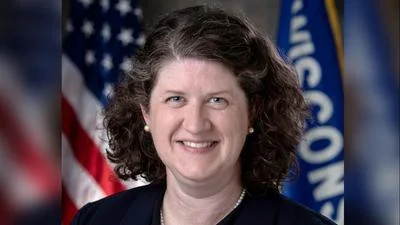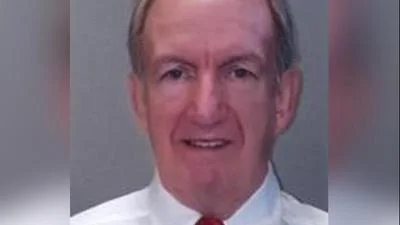Ron Tusler, Wisconsin State Representative for 3rd District | Official Website
Ron Tusler, Wisconsin State Representative for 3rd District | Official Website
According to the Wisconsin State Legislature's official website, the bill was described as follows: "eliminating the 13-week limit on the garnishment of earnings of certain debtors".
The following is our breakdown, based on the actual bill text, and may include interpretation to clarify its provisions.
In essence, this bill removes the 13-week limit on garnishment of certain debtors' earnings, allowing garnishments to persist until the debt is fully paid unless otherwise ordered by a court. It prioritizes court-ordered earnings garnishment for restitution in criminal cases over other garnishments but maintains the superior status of family law-related earnings assignments. Creditors must provide additional notices to debtors when garnishments extend beyond 13 weeks and continue sending exemption notices and forms every 180 days. The bill also stipulates the priority and amount limitations when both garnishment for restitution and family-support assignments are involved, ensuring garnishees manage payments without exceeding specified earning percentages.
The bill was co-authored by Senator Rob Hutton (Republican-5th District), Representative Rick Gundrum (Republican-58th District), Representative Dean Kaufert (Republican-53rd District), Representative Joel Kitchens (Republican-1st District), Representative Daniel Knodl (Republican-24th District). It was co-sponsored by Senator Van H. Wanggaard (Republican-21st District), along five other co-sponsors.
Ron Tusler has co-authored or authored another 84 bills since the beginning of the 2025 session, with none of them being enacted.
Tusler graduated from the University of Wisconsin-Milwaukee in 2007 with a BA and again in 2010 from Marquette University with a JD.
Tusler, a Republican, was elected to the Wisconsin State Assembly in 2017 to represent the state's 3rd Assembly district, replacing previous state representative Alvin Ott.
In Wisconsin, the legislative process starts when a senator, constituent, group, or agency proposes an idea for a bill. After drafting, the bill is introduced, numbered, and referred to a committee for review and public input. If approved, it moves through three readings and votes in both the Senate and Assembly. Once both chambers pass the same version, the bill goes to the governor, who can sign it, veto it, or let it become law without a signature. Only a small share of bills introduced each session ultimately become law. You can learn more about the Wisconsin legislative process here.
| Bill Number | Date Introduced | Short Description |
|---|---|---|
| AB296 | 05/30/2025 | Eliminating the 13-week limit on the garnishment of earnings of certain debtors |
| AB275 | 05/30/2025 | Challenges to the validity of administrative rules and making an appropriation. (FE) |
| AB274 | 05/30/2025 | The expiration of administrative rules. (FE) |
| AB189 | 04/15/2025 | An optional final hearing by affidavit for the dissolution of a marriage |
| AB171 | 04/09/2025 | Privacy protections for judicial officers |
| AB170 | 04/09/2025 | Prohibiting the Department of Justice from using the legal services of nongovernmental employees. (FE) |
| AB153 | 04/02/2025 | Income change notifications for child support or maintenance orders |
| AB144 | 03/17/2025 | Eliminating a judgeship from district IV of the court of appeals and establishing an additional judgeship for district III of the court of appeals |
| AB126 | 03/11/2025 | School bus back-up lamps |
| AB73 | 02/24/2025 | Statutory recognition of specialized treatment court and commercial court dockets |
| AB38 | 02/17/2025 | An income tax exemption for cash tips paid to an employee. (FE) |
| AB18 | 02/06/2025 | Fee waivers for state park vehicle admission receipts to pupils with Every Kid Outdoors passes. (FE) |






 Alerts Sign-up
Alerts Sign-up